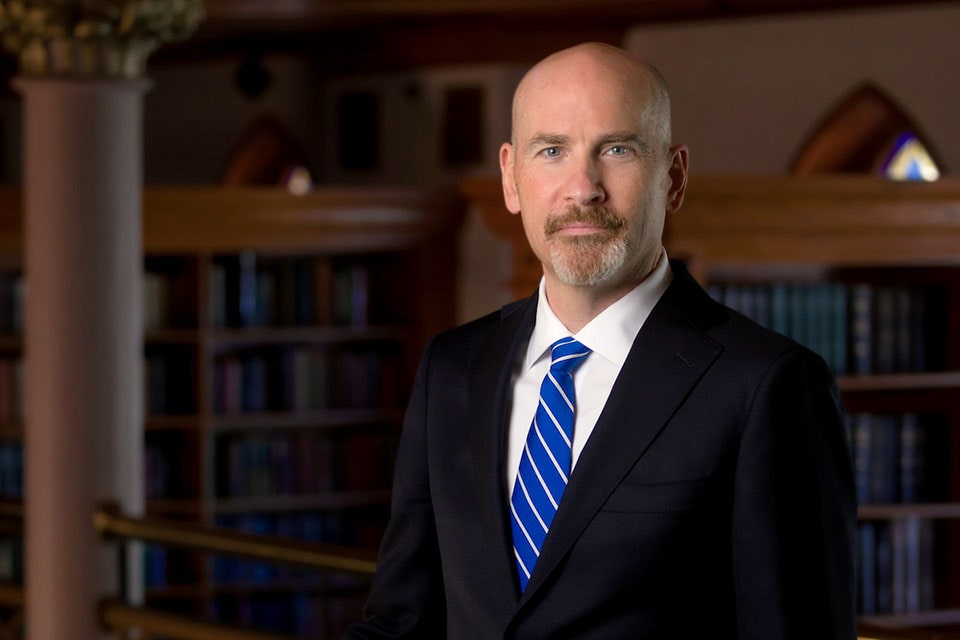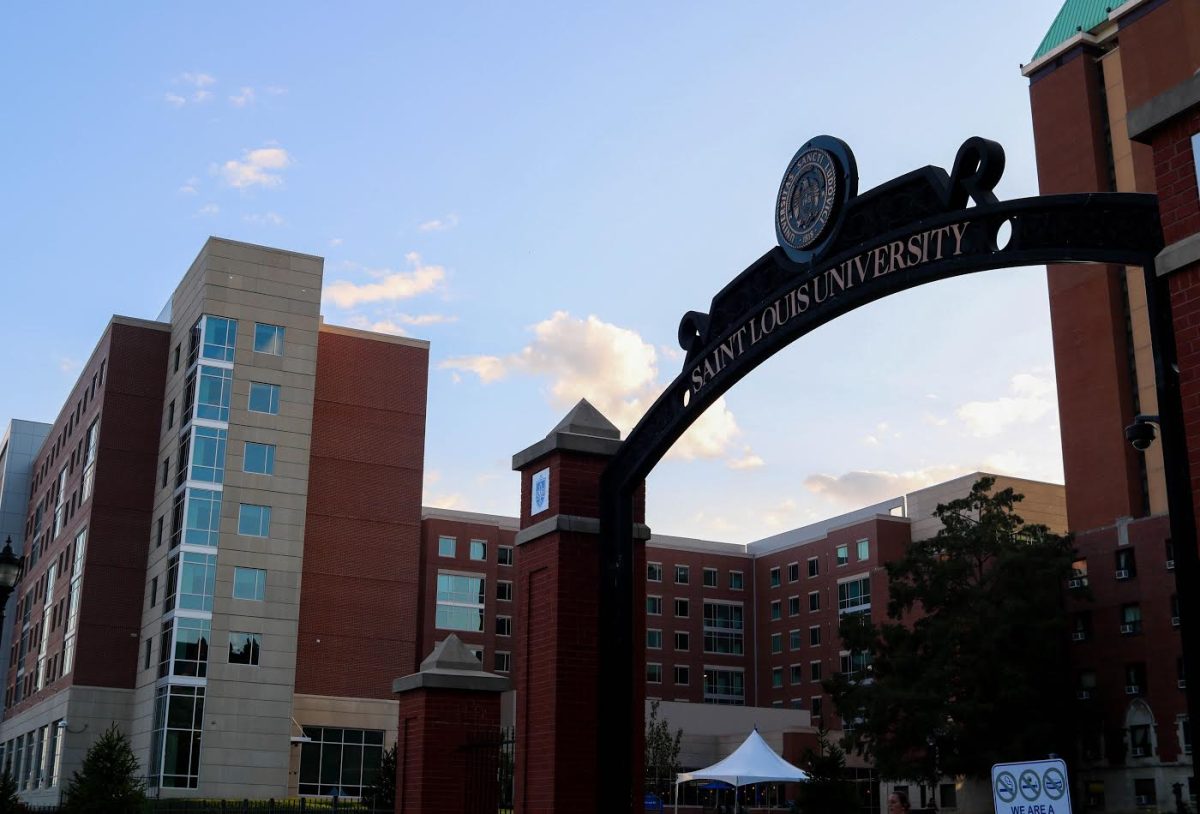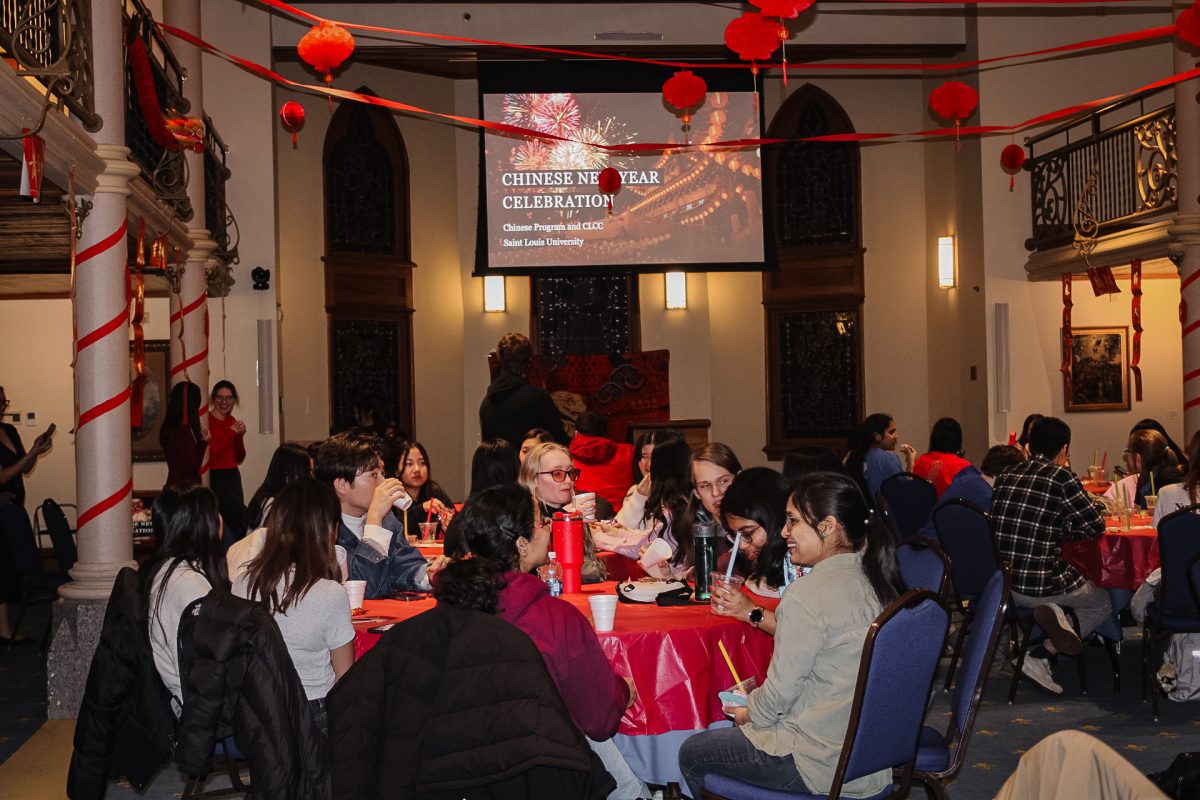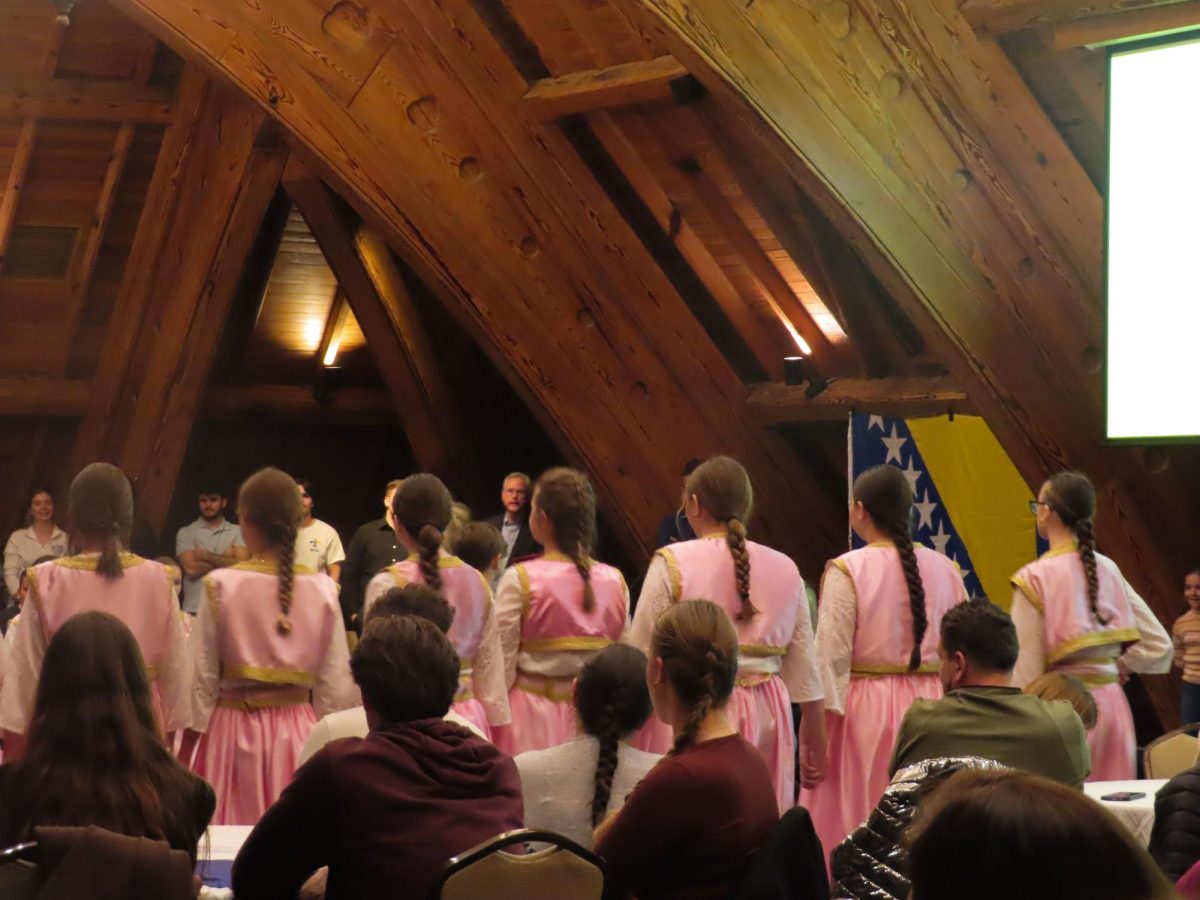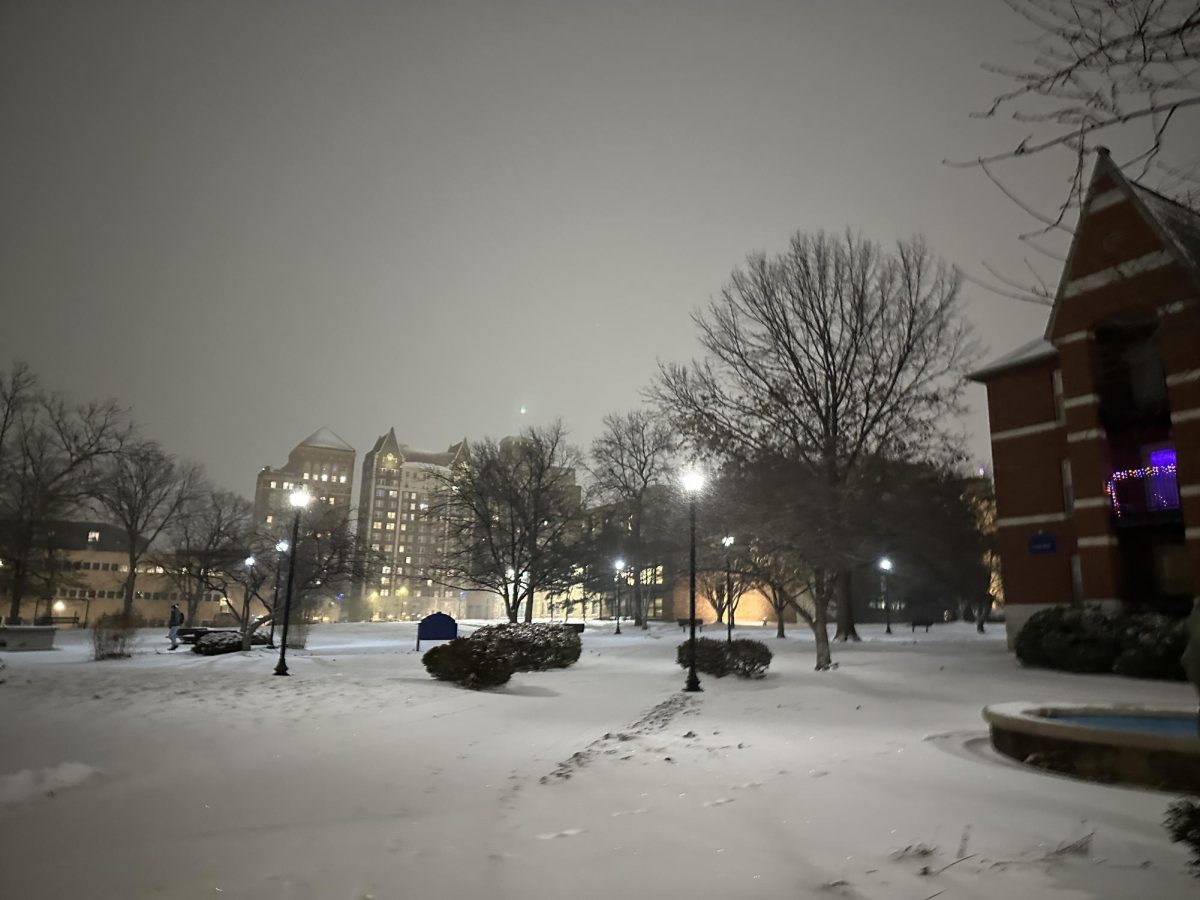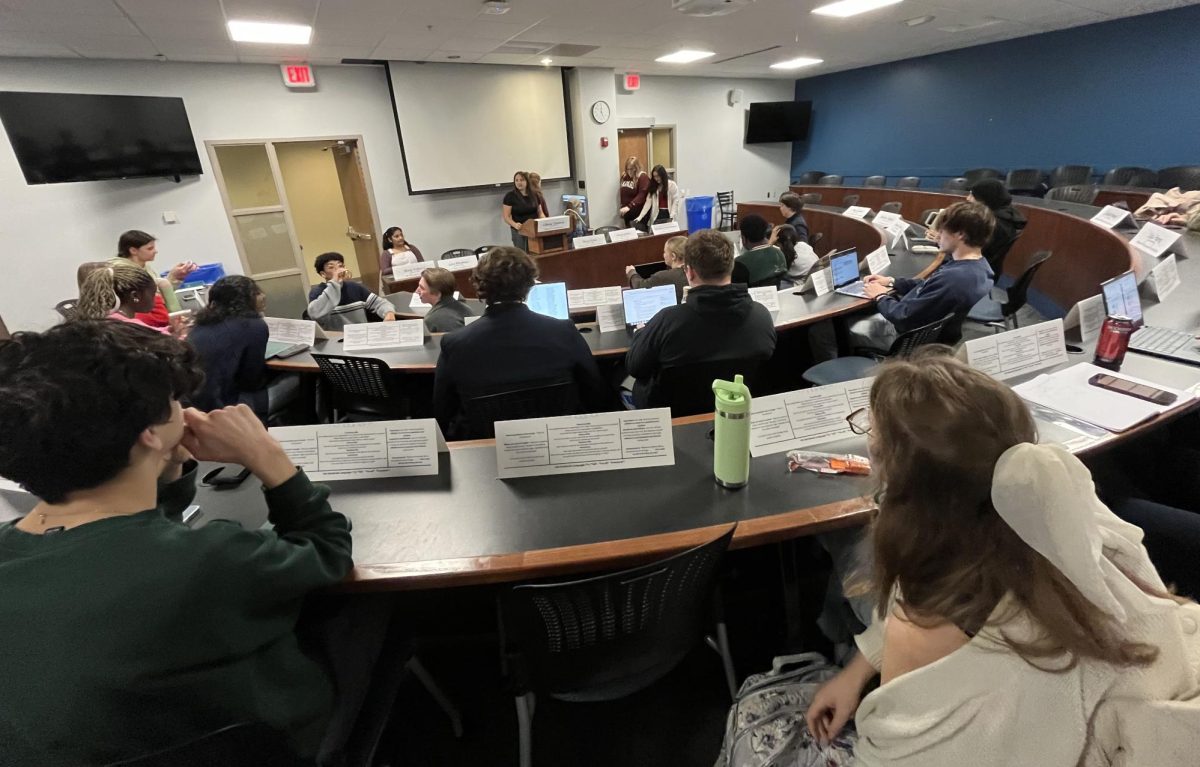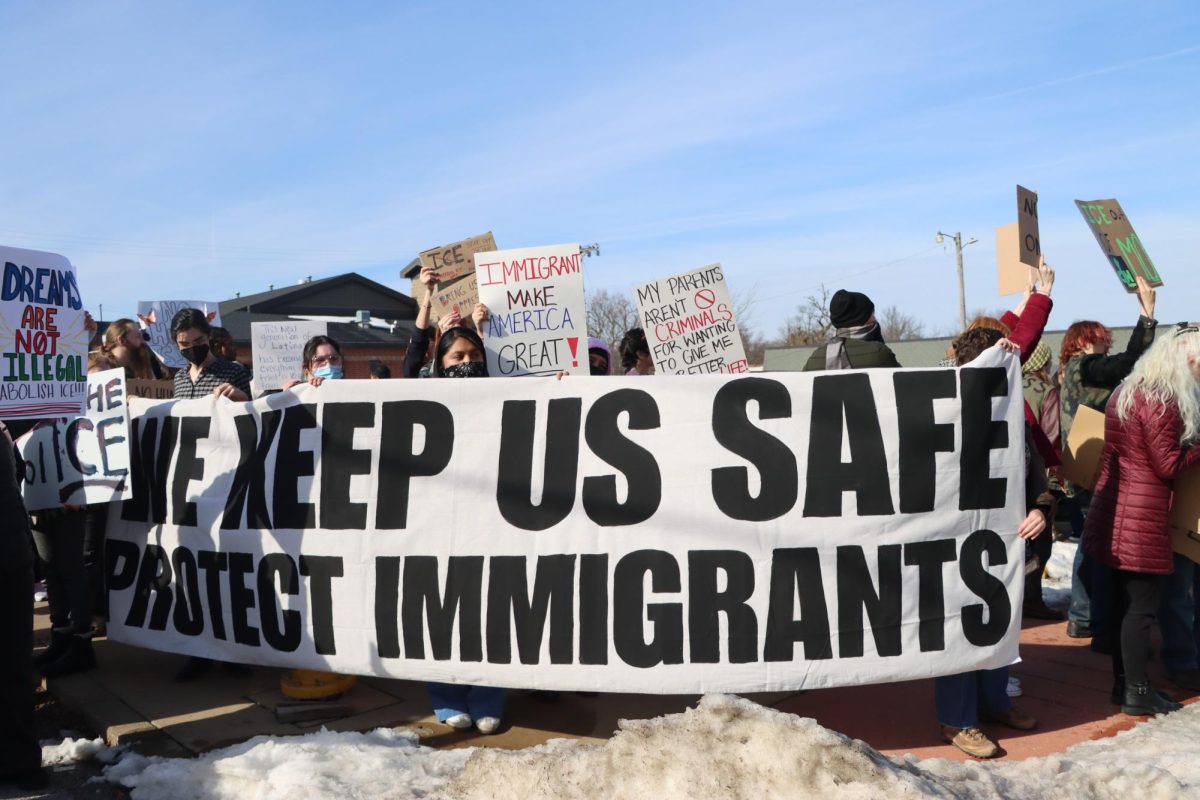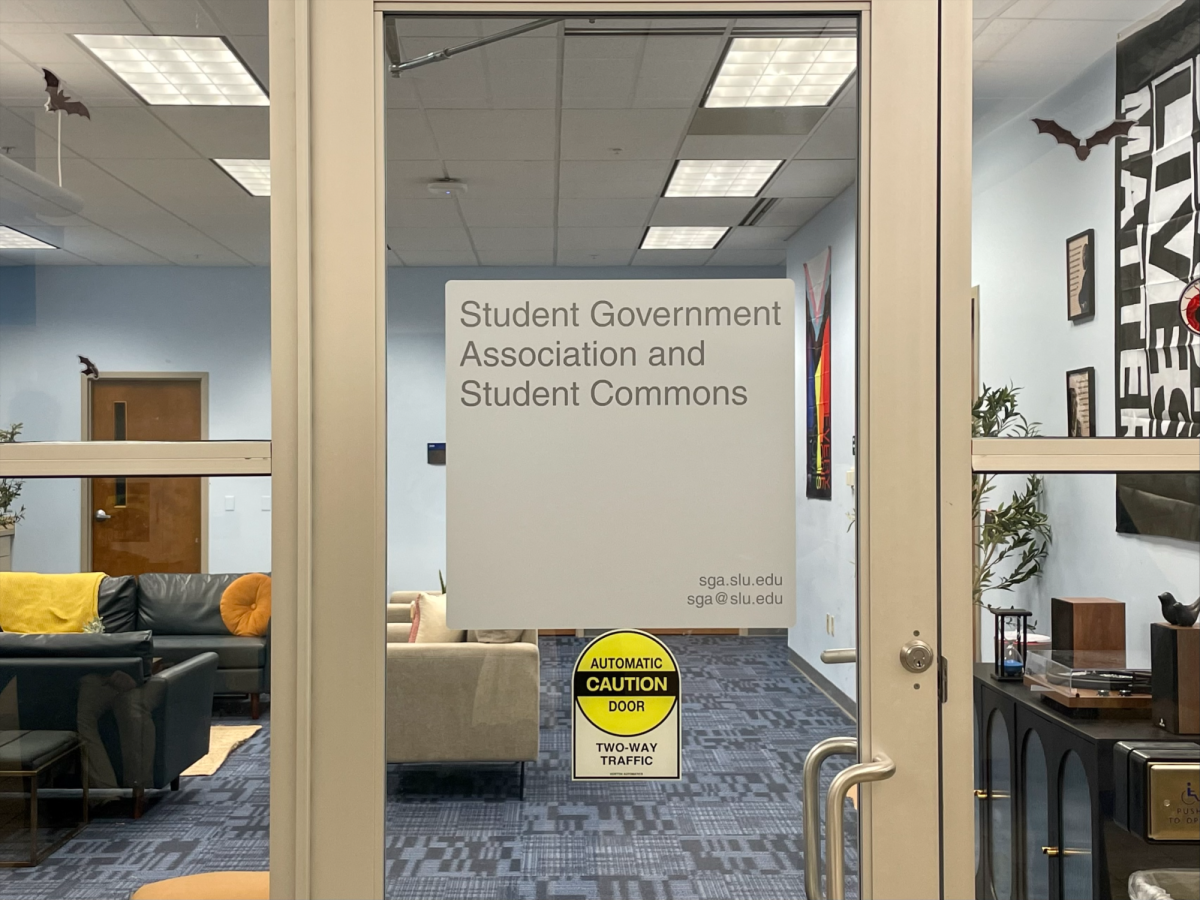A formal apology from Saint Louis University for enslaving people was delayed after Descendants of the St. Louis University Enslaved (DSLUE) pulled their participation hours before the scheduled event on March 26.
DSLUE founder and executive director Robin Proudie said they postponed the prayer service in which the public apology was scheduled to take place due to last-minute changes made by the university that did not honor previously agreed-upon details.
“We have been willing to engage and talk about everything, but what we will not do is become a photo op so they can go and parade us around and act like we are in alignment with what they are doing,” Proudie said at a press conference on the steps of St. Francis Xavier College Church where the service was set to happen.
Proudie was a part of a working group of students, faculty, staff and descendants who met five times to plan the public apology. Before the program, she noticed changes to the event schedule and asked for clarification.
“We didn’t want to be aligned with certain people who they decided to put on the agenda,” Proudie said.
One of these people was the Fr. Tim Kesicki, who was set to lead a prayer of “Reconciliation and Hope,” according to a copy of the event program obtained by The University News.
Proudie said that the descendants never got the opportunity to engage with Kesicki or the foundation he chairs, The Descendants of Truth and Reconciliation.
The organization, established by Georgetown University to “address and heal the wounds of [slavery],” does not entirely align with the wishes of the descendants.
“We explicitly told them that DSLUE is not interested in being affiliated with that foundation,” Proudie said.
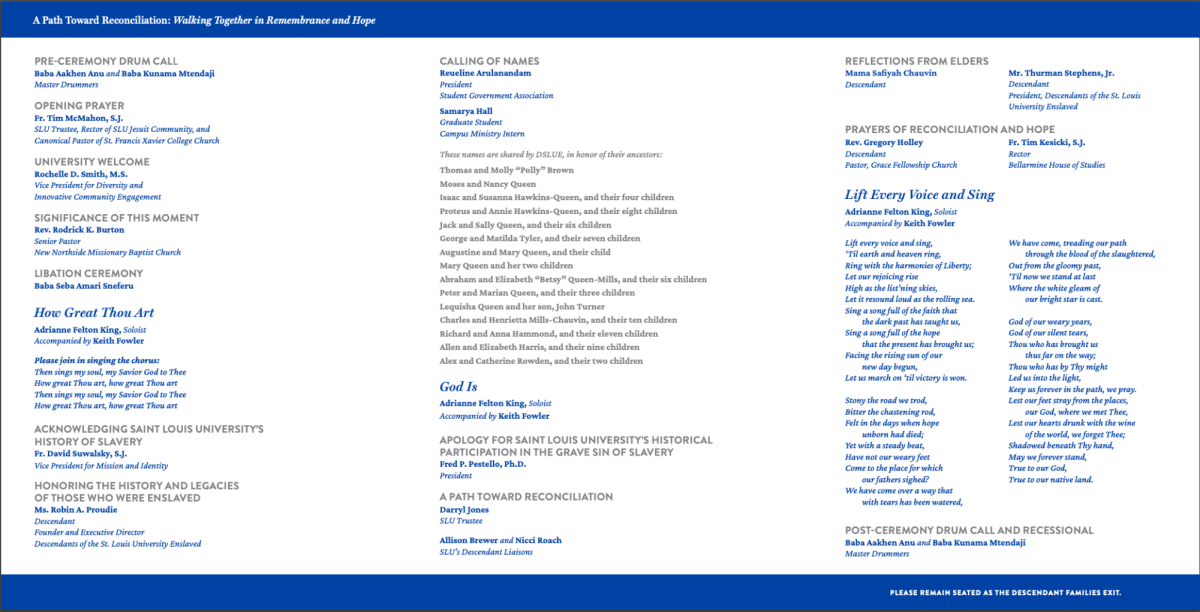
In an email to the SLU community sent less than two hours before the scheduled event, President Fred Pestello said the postponement saddens him, but the university remains committed to reconciliation efforts.
“In a number of forthright and challenging conversations this week, it became clear that we need to continue the work of building relationships with descendants before we are ready to proceed with a formal event,” Pestello said.
Rochelle Smith, vice president for diversity, also said the university will continue that work.
“We were saddened, but we respect their decision,” Smith said in a statement to The University News.
On Feb. 27, descendants and SLU held a historic candlelight vigil meant to advance the reconciliation process that had stalled for years.
In April 2024, SLU’s Student Government Association unanimously passed a 10-point plan, brought forward by the descendants, to push SLU to reconcile its history of slavery. The first step of the plan was a formal apology.
The resolution was well received by the student body, but Proudie said that SLU dismissed their call for financial reparations, including scholarships for the descendants and a research center for historical archives, without negotiating with DSLUE. The university only agreed to a formal apology, publishing a report and creating a monument to honor the descendants, she said.
Aylah Hopper, a Martin Luther King Jr. Scholar and a freshman majoring in exercise science, had planned to attend the prayer service, though she said the event was not well advertised to students on campus. Pestello announced the event via email five days before it was scheduled.
When the service was cancelled, Hopper said she was not surprised.
“Truthfully, I do not believe that the university as an institution is apologetic,” Hopper said. “If SLU truly was sincere in their efforts to apologize, this apology would have happened way before 2025.”
Hopper said she hopes SLU will still apologize for its participation in slavery and follow up with action, including renaming buildings after enslaved people who built the campus in their honor and ensuring the university is safe for African American students and staff.
The descendants hoped the prayer service could go on as planned, Proudie said. DSLUE had conversations with the university the morning of the postponed event to find a compromise.
“DSLUE made every possible effort so that this historic event could move forward,” Areva Martin, DSLUE’s attorney, said.
Several descendants flew in from out of state for the service, Proudie said.
“The descendants are ready to do the work. They’ve been doing the work,” Proudie said. “We’re calling on the board of trustees, we’re calling on the university’s leadership, its current president and its new president, to come to the table in good faith.”
The University News’ Ulaa Kuziez contributed to this report.











